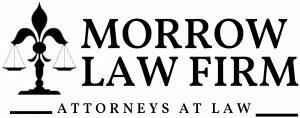
Understanding Louisiana’s Good Samaritan Laws in Vehicle Accidents
Overview of Louisiana’s Good Samaritan Laws
Louisiana’s Good Samaritan laws are designed to encourage individuals to assist others in emergency situations without fear of legal liability. These laws provide legal immunity to people who provide emergency care or aid at the scene of an accident, provided their actions are performed in good faith and without gross negligence.
The primary intent of these laws is to protect individuals who voluntarily offer help and do not have a legal obligation to do so. This protection applies to a range of activities, including administering first aid, calling emergency services, and providing other forms of assistance that could help accident victims.
Key Protections Offered by Good Samaritan Laws
Immunity from Liability: Individuals who offer emergency assistance are generally protected from civil liability for any harm that may result from their actions, as long as their conduct does not involve gross negligence or willful misconduct. This immunity ensures that people can assist accident victims without the fear of being sued for unintended consequences.
Good Faith Requirement: To qualify for protection under Good Samaritan laws, the assistance provided must be performed in good faith. This means that the aid must be given with the intention of helping and not for personal gain or recognition. The actions taken must also be reasonable under the circumstances, considering the urgency of the situation and the resources available.
Scope of Immunity: The immunity provided by Good Samaritan laws does not extend to situations involving gross negligence or intentional harm. If the individual’s actions are deemed to be excessively careless or deliberately harmful, they may still be held liable for any resulting damages.
Legal Considerations for Individuals Offering Aid
When providing assistance at the scene of a vehicle accident, individuals should be aware of the following considerations to ensure they are protected under the Good Samaritan laws:
Act Within the Scope of Training: Individuals should provide assistance within the limits of their training and capabilities. Offering aid beyond one’s skill level or attempting complex medical procedures without proper training could potentially lead to legal issues if the actions result in harm.
Avoid Unnecessary Risks: While offering help, individuals should avoid taking unnecessary risks that could worsen the situation or cause additional harm. The primary focus should be on providing safe and effective assistance while minimizing potential risks to both the victim and the rescuer.
Call Professional Help: In many cases, the best course of action is to call emergency services and wait for professional responders to arrive. Providing basic first aid and ensuring that trained medical personnel are on the way can be a prudent approach in emergency situations.
Challenges and Misconceptions
Despite the protections offered by Good Samaritan laws, misconceptions and challenges may arise:
Misunderstanding of Immunity: Some individuals may be unsure about the extent of immunity provided by the laws and may hesitate to offer help due to fear of legal consequences. Understanding the legal protections can help alleviate these concerns and encourage more people to assist in emergencies.
Situations Involving Multiple Parties: In cases where multiple individuals are involved in providing aid, determining the extent of each person’s actions and the associated liability can be complex. Clear documentation and coordination with emergency responders can help clarify the roles and responsibilities of those offering assistance.
Insights from Legal Professionals
Understanding the legal framework surrounding Good Samaritan laws can provide clarity and reassurance to individuals who wish to help accident victims. William P. Morrow of Morrow Law Firm, which is led by William P. Morrow, John Michael Morrow, Jr., and Stephen M. Morrow, emphasizes the importance of these laws in encouraging community support during emergencies.
“Louisiana’s Good Samaritan laws play a crucial role in protecting individuals who step forward to assist during emergencies. By potentially offering legal immunity, these laws ensure that people can provide help without undue concern about potential legal repercussions,” said William P. Morrow.
Conclusion
Louisiana’s Good Samaritan laws provide essential protections for individuals who offer assistance at the scene of a vehicle accident. By understanding these legal protections and adhering to the principles of good faith and reasonable conduct, individuals can confidently offer help in emergency situations. Ensuring that assistance is performed within the scope of one’s training and avoiding unnecessary risks can help safeguard both the victims and the rescuers. Through these protections, Louisiana fosters a supportive community environment where people are encouraged to aid those in need without fear of legal consequences.
Morgan Thomas
Rhino Digital, LLC
+1 504-875-5036
email us here
Visit us on social media:
Facebook
Distribution channels: Automotive Industry, Culture, Society & Lifestyle, Insurance Industry, Law
Legal Disclaimer:
EIN Presswire provides this news content "as is" without warranty of any kind. We do not accept any responsibility or liability for the accuracy, content, images, videos, licenses, completeness, legality, or reliability of the information contained in this article. If you have any complaints or copyright issues related to this article, kindly contact the author above.
Submit your press release

